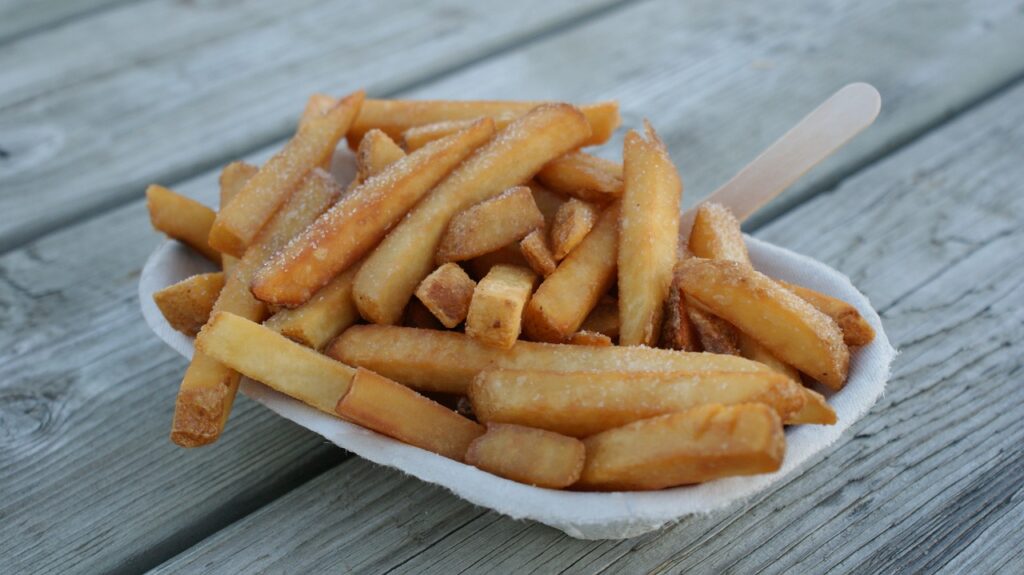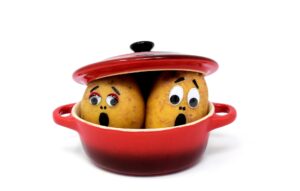When it comes to maintaining a healthy lifestyle, avoiding certain foods is essential. In this article, we will explore the top unhealthy foods that you should steer clear of if you want to prioritize your health.
From the #1 unhealthiest food to the top 10 unhealthiest foods in the world, we will uncover the detrimental effects these items can have on your well-being.
Additionally, we will delve into the specific unhealthy foods that are particularly harmful to kids, seniors, and even pets. So, if you’re ready to make informed choices about what not to eat, keep reading to discover the worst food you could consume.

This image is property of pixabay.com.
What is the #1 unhealthiest food?
Overview
When it comes to unhealthy foods, there are numerous contenders that can wreak havoc on your health. However, if we had to pinpoint the #1 unhealthiest food, it would be highly processed snacks and junk foods.
These include items like potato chips, cookies, sugary cereal, soda, and candy bars. These foods are often packed with added sugars, unhealthy fats, and high levels of sodium, making them a recipe for poor health.
Consuming these foods regularly can contribute to weight gain, increased risk of chronic diseases, and overall poor nutrition.
Processed snacks and junk foods are typically lacking in essential nutrients while being loaded with unhealthy ingredients.
They are often high in empty calories, meaning they provide little to no nutritional value. Instead, they are filled with added sugars, artificial flavors and colors, preservatives, and unhealthy fats.
These ingredients can have detrimental effects on your overall health, including an increased risk of obesity, heart disease, type 2 diabetes, and certain cancers.
It’s important to note that consuming these foods in moderation is not necessarily harmful. However, when they become a regular part of your diet and take up a significant portion of your daily caloric intake, they can contribute to a host of health issues.
Therefore, it is advisable to limit your consumption of these processed snacks and opt for healthier alternatives whenever possible. Your body will thank you for making this small change in your eating habits.
What are the top 5 unhealthiest foods?
Overview
When it comes to unhealthy foods, there are a few that stand out as particularly detrimental to your health.
These top five unhealthiest foods are often high in unhealthy fats, added sugars, sodium, and calories while providing minimal nutritional value. Let’s take a closer look at each of them:
- Soda and sugary beverages: Soda and other sugary drinks are packed with added sugars and provide no essential nutrients. Regular consumption of these beverages has been linked to weight gain, obesity, type 2 diabetes, and tooth decay.
- Fast food burgers: Fast food burgers are often made from low-quality meat and are loaded with unhealthy fats, sodium, and processed ingredients. They are high in calories and can contribute to weight gain, high cholesterol levels, and an increased risk of heart disease.
- Processed pastries and baked goods: Pastries like donuts, cupcakes, and cookies are often made with refined flour, added sugars, and unhealthy fats. These treats are high in calories and lack important nutrients, making them a poor choice for your overall health.
- Fried foods: Whether it’s French fries, fried chicken, or deep-fried snacks, these foods are typically high in unhealthy fats and calories. Regular consumption of fried foods can lead to weight gain, increased cholesterol levels, and an increased risk of heart disease.
- Candies and chocolates: While an occasional sweet treat can be enjoyed in moderation, regular consumption of candies and chocolates can lead to weight gain, tooth decay, and an increased risk of chronic diseases. These treats are often high in added sugars and unhealthy fats, providing little nutritional value.
It’s important to note that indulging in these foods occasionally is unlikely to cause significant harm. However, incorporating them into your daily diet can have negative effects on your health. Instead, try to prioritize whole, nutrient-dense foods and reserve these unhealthy options for special occasions.
What is the most unhealthy food to eat in the world?
Overview
While it’s difficult to determine the single most unhealthy food to eat in the world, there is one dish that often tops the charts: deep-fried butter. This indulgent creation involves taking balls of butter, battering them, and deep frying them until golden and crispy.
It may sound like a heart attack waiting to happen, and that’s because it is. Deep-fried butter is incredibly high in unhealthy fats and calories and provides no significant nutritional benefits.
The concept of deep-fried butter originated in the United States and gained popularity at state fairs and festivals. It is often served as a novelty treat, with each ball of deep-fried butter packing a calorie bomb that can contribute to weight gain and negatively impact your heart health.
Consuming this dish regularly or in large quantities would undoubtedly have severe consequences for your health.
Deep-fried butter is a prime example of an unhealthy food that should be enjoyed sparingly, if at all. It serves as a reminder of the importance of a balanced diet rich in whole, nutritious foods.
While the occasional indulgence can be part of a healthy lifestyle, it’s essential to prioritize foods that nourish your body and support your overall well-being.
What is the top 10 unhealthiest food in the world?
Overview
When it comes to unhealthy foods, there are numerous contenders vying for the unhealthiest title. While it’s challenging to narrow it down to just ten, here are some notable mentions:
- Deep-fried foods: Whether it’s French fries, onion rings, or deep-fried snacks, these foods are typically high in unhealthy fats and calories. Regular consumption can lead to weight gain, elevated cholesterol levels, and an increased risk of heart disease.
- Sugary cereals: Many popular breakfast cereals marketed towards children are loaded with added sugars and lack essential nutrients. Starting the day with a bowl of sugary cereal can contribute to weight gain, insulin resistance, and an increased risk of chronic diseases.
- Processed meats: Deli meats, sausages, hot dogs, and bacon are processed meats that are often high in sodium and unhealthy additives. Regular consumption has been linked to an increased risk of cancer, heart disease, and other health problems.
- Artificial sweeteners: While not a food in itself, artificial sweeteners are often found in various processed foods and beverages marketed as “diet” or “sugar-free” options. The long-term effects of these sweeteners are debated, but some studies suggest they may have negative impacts on gut bacteria and metabolic health.
- Trans fats: Trans fats are artificially created fats found in many processed foods, including margarine, baked goods, and fast food. They have been strongly linked to an increased risk of heart disease, inflammation, and other health issues.
- Energy drinks: These popular beverages are often loaded with sugar, caffeine, and artificial additives. Regular consumption can lead to weight gain, tooth decay, and adverse effects on cardiovascular health.
- Processed cheese: While cheese itself can have health benefits, processed cheese products like cheese spreads and processed American cheese are often loaded with unhealthy ingredients like artificial flavors, colors, and excessive sodium.
- Sugary drinks: Soda, fruit juices, and other sweetened beverages are high in added sugars and provide little to no nutritional value. Regular consumption has been linked to weight gain, obesity, type 2 diabetes, and dental problems.
- Margarine: Margarine is a highly processed butter substitute that is often made with hydrogenated oils and contains trans fats. These unhealthy fats can contribute to inflammation, heart disease, and other health issues.
- Instant noodles: Instant noodles are a popular convenience food that is typically high in sodium, unhealthy fats, and processed ingredients. Regular consumption can lead to weight gain, elevated blood pressure, and an increased risk of metabolic syndrome.
These foods should be consumed in moderation, if at all, as part of a balanced and nutrient-rich diet. Prioritizing whole, unprocessed foods and cooking meals from scratch whenever possible is the best way to support your health and well-being.
This image is property of pixabay.com.
Unhealthy foods for kids
Overview
The dietary choices we make for our children can have a significant impact on their overall health and well-being. Unfortunately, there are several foods that are commonly consumed by kids that are considered unhealthy. Here are a few notable examples:
- Sugary cereals: Many breakfast cereals marketed towards children are loaded with added sugars and lacking in essential nutrients. Starting the day with a bowl of sugary cereal can contribute to weight gain, tooth decay, and an increased risk of chronic diseases.
- Fast food meals: Fast food meals, such as burgers, fries, and soda, are often high in unhealthy fats, sodium, and added sugars. Regular consumption can lead to weight gain, elevated cholesterol levels, and an increased risk of heart disease and type 2 diabetes.
- Processed snacks: Snack foods like chips, cookies, and candy bars are often packed with added sugars, unhealthy fats, and artificial ingredients. These snacks provide little to no nutritional value and can contribute to poor overall nutrition.
- Fruit juice: While it may seem healthy, fruit juice is often high in added sugars and lacks the fiber found in whole fruits. Consuming excessive amounts of fruit juice can lead to weight gain, tooth decay, and an increased risk of type 2 diabetes.
- Sports and energy drinks: These beverages are marketed towards children and adolescents as a source of hydration and energy. However, they are typically high in sugar, caffeine, and artificial additives. Regular consumption can lead to weight gain, dental problems, and adverse effects on cardiovascular health.
As a parent or caregiver, it’s important to prioritize whole, nutrient-dense foods for your children. Offering a variety of fruits, vegetables, whole grains, lean proteins, and dairy products will help support their growth and development.
Limiting their intake of processed snacks, sugary drinks, and fast food can play a significant role in promoting their long-term health.
Unhealthy foods for seniors
Overview
As we age, our nutritional needs change, and it becomes increasingly important to make conscious decisions about our food choices.
While there are no specific foods that are universally unhealthy for seniors, some choices can have negative effects on their overall health. Here are a few examples:
- High-sodium processed foods: Seniors are often advised to watch their sodium intake due to its potential impact on blood pressure. Consuming high levels of sodium, often found in processed foods like canned soups, frozen meals, and packaged snacks, can lead to water retention and increased blood pressure.
- Sugary drinks and desserts: Seniors are more susceptible to dental problems and chronic conditions like diabetes. Regular consumption of sugary drinks and desserts can contribute to weight gain, tooth decay, and an increased risk of developing or exacerbating chronic diseases.
- High-fat and fried foods: Aging bodies often have a more difficult time metabolizing unhealthy fats. Foods like fried chicken, French fries, and processed meats should be consumed in moderation to avoid weight gain, high cholesterol levels, and an increased risk of heart disease.
- Alcohol: While a moderate intake of alcohol can have some health benefits, excessive alcohol consumption can lead to adverse effects on liver health, cognitive function, and overall well-being. Seniors should be mindful of their alcohol intake and avoid excessive or risky drinking.
It’s crucial for seniors to prioritize a well-balanced and varied diet that includes plenty of fruits, vegetables, whole grains, lean proteins, and healthy fats.
Staying hydrated, engaging in regular physical activity, and staying in touch with healthcare professionals can help ensure optimal health and well-being in the senior years.

This image is the property of pixabay.com.
Unhealthy foods for pets
Overview
Just as it is important to make healthy food choices for ourselves, it’s equally important to consider the nutritional needs of our pets.
While there are numerous human foods that can be harmful to animals, here are a few common examples of unhealthy foods for pets:
- Chocolate: Chocolate contains theobromine, a substance that is toxic to dogs and cats. Even small amounts of chocolate can lead to symptoms like vomiting, diarrhea, rapid breathing, and in severe cases, seizures and death.
- Grapes and raisins: Grapes and raisins can cause kidney failure in dogs and cats, even in small quantities. It’s best to keep these fruits out of their reach to avoid any potential health issues.
- Onions and garlic: Onions and garlic contain compounds that can be toxic to pets, leading to anemia and other health problems. It’s important to avoid giving them any foods that contain these ingredients.
- xylitol: Xylitol is an artificial sweetener that is toxic to dogs. It can cause a sudden release of insulin, leading to low blood sugar and potential liver damage. Xylitol can be found in sugar-free gums, candies, and other sugar-free products, so it’s essential to keep these items away from your furry friends.
- Alcohol: Alcohol can have similar effects on pets as it does on humans, leading to intoxication, lack of coordination, and potential damage to the liver and brain. It’s crucial to keep any alcoholic beverages out of their reach.
It’s important to consult with your veterinarian about the specific dietary needs of your pets and to avoid giving them any foods that could be harmful. Opting for high-quality pet food formulated for their specific species and size, along with occasional safe and healthy treats, is the best way to ensure their nutritional needs are met while avoiding any potential health risks.
Worst eaten food in the world
Overview
When it comes to the worst-eaten food in the world, there isn’t just one specific dish or ingredient that stands out. However, certain food practices and choices can be detrimental to one’s health. Here are a few examples:
- Excessive consumption of processed and junk foods: Regularly indulging in highly processed snacks, fast food, and sugary treats can have adverse effects on your health. These foods are often high in unhealthy fats, added sugars, and sodium, while providing minimal nutritional value.
- Unbalanced diets: Diets that are lacking in essential nutrients and consist primarily of unhealthy food choices can lead to various health problems. It’s crucial to prioritize a well-balanced diet that includes a variety of fruits, vegetables, whole grains, lean proteins, and healthy fats.
- Lack of variety: Consuming the same limited range of foods can lead to nutrient deficiencies and a lack of vital vitamins and minerals. It’s important to aim for a diverse diet that includes a wide array of foods to ensure your body receives all the necessary nutrients.
- Overconsumption of salt added sugars, and unhealthy fats: Diets that are high in sodium, added sugars, and unhealthy fats can contribute to numerous health issues, including increased blood pressure, weight gain, and an increased risk of chronic diseases.
To avoid these unhealthy food practices, it’s essential to focus on making informed choices and prioritizing whole, nutrient-dense foods. Incorporate a variety of fruits, vegetables, whole grains, lean proteins, and healthy fats into your diet while limiting your intake of processed foods, sugary drinks, and unhealthy snacks.
By doing so, you can take control of your overall health and well-being.



